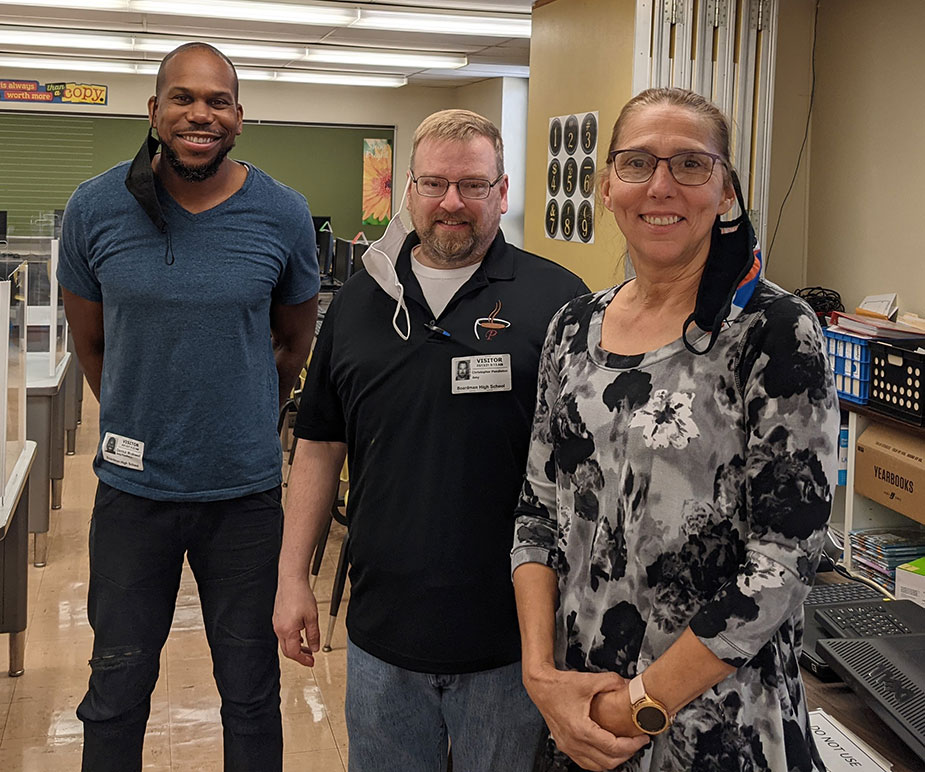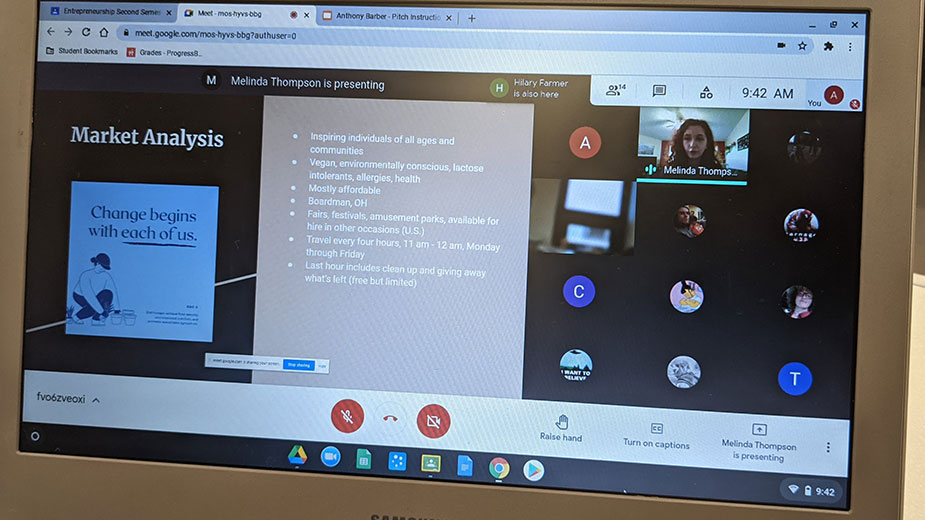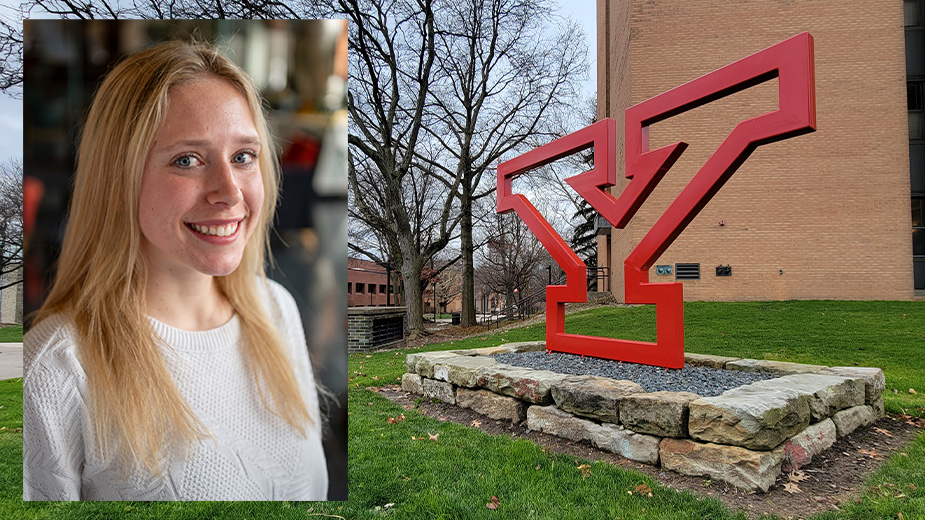Startup-Minded Boardman Students Pitch Tasty Ventures
BOARDMAN, Ohio — During her business pitch on Thursday, Boardman High School sophomore Melinda Thompson hoped her idea for Thoughtful Tasties would win the favor of the three judges.
Thompson is a student in Amy Pendleton’s business class at the high school. Her pitch was one of 22 in-person and virtual presentations for a food truck business offered between morning and afternoon sessions, some of which are wrapping up today.
The goal for the competition is to determine a use for a food truck purchased by Boardman Local Schools to potentially serve buildings in the district next academic year. Until Pendleton’s class, Thompson said she had little to no prior entrepreneurial experience.
“I’m hoping, out of all the ideas I’ve presented, that the idea of expanding the menu to a diversity of diets will at least be considered,” Thompson says. “[She hopes] the enjoyment a high school student, or anyone, can get out of a delicious dessert will be brought to our school.”
Groups of students pitched their ideas to three local judges: Derrick McDowell, founder of the Youngstown Flea; Chris Pendleton, who co-owns Peaberry’s Café with Amy, his wife; and Natalie Winkle, the district’s food service director. Judging is based on startup costs, social media plans, slogans and menu items.
Students researched products such as sinks, grills, espresso machines and any litany of items related to their business idea, Amy Pendleton said. The experience covers the class curriculum for entrepreneurship to show students how a business is created in this version of a “Shark Tank”-like event.

The school system has taught entrepreneurship concepts through Junior Achievement of Mahoning Valley, Pendleton said. Through JA’s new entrepreneurial mindset program, an example of a food truck gave Boardman Local the idea in early 2020 – before the onset of COVID-19 – to transform a bus into a food truck, encouraging students to eat at school.
Incorporating some of the student’s ideas from these presentations and adhering to the school’s stringent nutritional guidelines are important to providing good food options for the district, Winkle said. The vehicle was purchased using school food service funds, and the district is working on alternative methods to get it retrofitted into a food truck, she said.
“My goal would be to get it on the road for next year depending on how quickly we can get it moving,” Winkle said. “My dream would be to drive down the parade route on the Fourth of July and pass out boxes of raisins and apples instead of candy.”
Students each have $5,000 of imaginary money to invest in their own project or another idea. Each of the three judges had a pot of $25,000 in imaginary funds to put toward their picks for the best project. During the presentations, judges asked about cost analysis, investment strategies, locations, operational procedures, food distribution, employee wages and hours, and other questions.
One of the presentations mentioned ServSafe, a food safety training program. Peaberry’s uses the program to train its own employees to keep the kitchen clean. Chris Pendleton said he was impressed by the students’ knowledge of the program and other aspects of their pitch.
“It gives you high hope for what these young people are going to do when they hit the business market,” he says.
McDowell adds that this is a “wonderful beginning” into entrepreneurship for these Boardman students.
The entrepreneurial mindset should be flourishing in students with creativity, solutions, and being someone who is resourceful and having a grasp of the market when your business is starving for attention, McDowell said. These students presented ideas such as Uber Eats and mapping their food truck’s location to promote their products.
“That’s technology,” he said. “We talk about 21st century jobs. We need 21st century thinking with our kids.”
That thought process behind starting a business such as startup costs, materials and other facets intrigued junior Ray Griggy. He says it’s not enough to voice, “Hey, I want to start this.”
Licensing, storage, truck insurance, permits, social media plans and other business-starting facets were instrumental in each presentation. Amy Pendleton had a checklist in front of her to see if the projects were turned in on time, questions from judges were properly answered, that projects kept to the entrepreneurial model and other business variables.
“I’m hoping that they are learning that when they go to a Dunkin or they go to a local shop they see all that is involved in starting that business,” she says. “Whether it’s a corporate business or a small business, [they see] the amount of time and energy they have to develop to create that and make it be able to open.”
Pictured at top: Melinda Thompson gives her virtual pitch for Thoughtful Tasties.
Copyright 2024 The Business Journal, Youngstown, Ohio.



